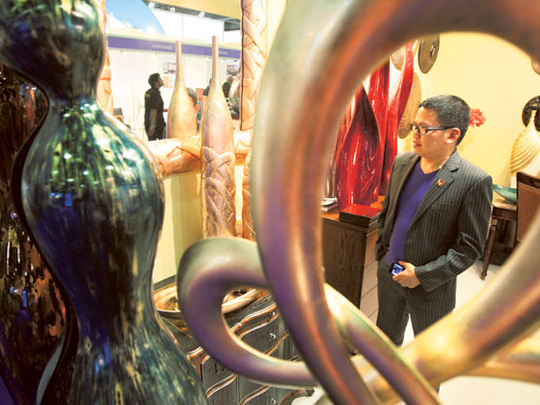
Dubai: Hotels in the Middle East, especially those in the mid-market category, must increase investments in technology to open more revenue streams and stand out from competitors, industry experts said.
At The Hotel Show on Saturday, experts from the technology and hospitality industries discussed the important role of technology in the hospitality industry.
Hotels in the region, including mid-market hotels, are “over-reliant on OTAs [online travel agents], such as Expedia and Booking.com,” Alexander Barder, regional director of business development in the Middle East and Africa at Sabre Hospitality Solutions, told Gulf News. To boost revenue, hotels should invest in other channels such as social media networks, including Facebook and Twitter, and metasearch, like Google and TripAdvisor, Barder said.
Hotels should also invest in their own website in order to generate more bookings there, and consequently, more direct revenue.
“It’s cost-efficient for hotels when customers book through their branded website because there are no third party fees involved,” Barder said. This makes branded websites more profitable, he said.
“Technology can help hotels compete and it also fits the market needs,” he added.
On why mid-market hotels are not investing enough in technology, Barder said: “There’s an upfront cost to get the technology in place.”
To get bookings through OTAs, hotels pay a commission, which can stand at 20 per cent. However, hotels pay “a fraction of what they pay to OTAs” if bookings are made on their own website.
Better interaction with guests
Mid-market hotels are not using technology enough to develop their interaction with guests, according to Jeff Strachan, general manager at Insights Management Consultancy, a business consultancy with a focus on tourism, hospitality and service industries.
“Collaboration between IT, guest service and marketing is vital for innovation,” Strachan said.
Hotels have access to guest information, such as when they are about to travel, so they can send them personalised messages, including room service or offers, he suggested.
Meanwhile, platforms such as Facebook and TripAdvisor can give hotels exposure and boost revenue since travellers use these platforms heavily to find hotel information and reviews, according to Barder.
TripAdvisor has 100 million reviews and opinions since earlier this year, according to Dan Cross, territory manager for the Middle East and Africa at TripAdvisor. “Ninety-three per cent of travellers’ booking decisions are impacted by online reviews,” Cross said.
Although Facebook does not account for huge booking volumes, usage of the site for hotel recommendations is high, Barder said.
Meanwhile, Barder said that hotels should create websites that are responsive to mobile devices, including smartphones and tablets, as travellers increasingly use them.
While a high percentage of guests visit hotel websites using their mobile phones, actual transactions through such devices are not as high as the volume of traffic, he added.












